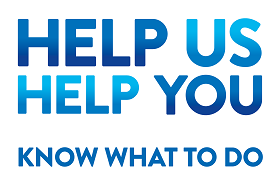Equality and Health Inequalities
Promoting equality is at the heart of our values. We will commission services fairly, so that no community or group is left behind in the improvements we make across the area. This is especially important as we work towards the challenges faced by the NHS, set out in the NHS Long Term Plan.
Guidance for commissioners on meeting legal duties for equality and health inequalities also supports our work.
Equality
We will continue to work with our staff and member GP practices and in partnership with our service providers, the community and voluntary sector and other key organisations, to ensure that we advance equality of opportunity and meet the exacting requirements of the Equality Act 2010.
The Equality Act 2010 requires us to meet our Public Sector Equality Duty across a range of protected groups including age, disability, race, sex, sexual orientation, religion/belief, gender reassignment, marital/civil partnership status and pregnancy/maternity status.
Our Annual Equality Report for 2021/22 is published here.
Our Equality Objectives and EDS 2 (Equality Delivery System 2)
We are required to prepare and publish equality objectives to meet our specific duty as outlined in the Equality Act 2010. Our plan is specific and measurable and we will update the plan on an annual basis. We have worked collaboratively with our providers on implementing our Equality Delivery Systems (EDS2) toolkit. This has resulted in all health services tackling the same barriers and issues that sustain health inequalities in the borough.
We understand that sometimes in our lives we may face barriers in relation to accessing health services or experience different outcomes. We want to make big differences to health across our diverse communities and our following equality objectives will support us to do this:
- To make fair and transparent commissioning decisions
- To improve access and outcomes for patients and communities who experience disadvantage
- To improve the equality performance of our providers through robust monitoring and collaboration
- To empower and engage our workforce
To help us set our equality objectives we use the EDS 2 self-assessment.
The CCG’s EDS2 summary report for 2020/21 is available here. Progress has been made on a number of actions over the last twelve months which can be seen in our updated equality objective action plan which is available here.
Our Equality Objective Plan for 2019/2023 was approved by our Governing Body in May 2019.
Equality Impact Assessment and analysis
An Equality Impact Assessment (EIA) is a toolkit used for major strategies, policies and changes to services to ensure that they do not have a differential impact on people.
A pre- engagement equality analysis report sets the ground for a final Equality Analysis report. It identify changes that will impact on people, it identifies potential negative impacts that may or have the potential to be discriminatory and identifies potential mitigations. The analysis also advises engagement / consultation process on any necessary considerations and highlights any actions that may need to be considered in facilitating change linked to protected characteristics. Post engagement/ consultation a full Equality Analysis is completed, amalgamating any learning from the processes for consideration by the CCGs decision making committee.
Copies of EIAs will shortly be available on the CCG website. In the meantime if you have wish to obtain copies of completed EIAs please email Andy Woods, Equality and Inclusion Service Senior Governance Manager or Jo Roberts, Equality and Inclusion Service Manager.
Workforce equality and diversity updates
Workforce Race Equality Standard (WRES) report 2020/21
Workforce Equality Action Plan update
Workforce equality and diversity profile - 2013
Health inequalities
There are significant gaps in health and life expectancy between those living in the most deprived and least deprived areas of the borough, due to some distinct local challenges and needs.
Sefton's ageing population is growing much faster than the national average, increasing future demand for health and care services. The number of people with long term conditions, sensory impairment, dementia, cancer and other health problems is growing, as is the number of children with complex health and care needs.
When we are developing or changing services we will consider for all parts of our community, specifically those who experience greater health inequalities.
We use a number of resources to support our work around reducing health inequalities - specifically around involvement, engagement and wider commissioning - including:
Sefton Joint Strategic Needs Assessment
Sefton Health and Wellbeing Strategy
Sefton Public Health Annual Report
Equality and health inequalities NHS RightCare pack
Cheshire and Merseyside Health and Care Partnership
The services we commission from local voluntary, community and faith (VCF) organisations are examples of how we are working to address health inequalities.
Want to know more?
You can find more information about equality and diversity from the Equality and Human Rights Commission website.
Copies of EIAs are available on request. Please email Andy Woods, Equality and Inclusion Service Senior Governance Manager or Jo Roberts, Equality and Inclusion Service Manager.
If you would like to contact us about an equality and diversity matter, please email Andrew Woods, senior governance manager (equality and inclusion).





